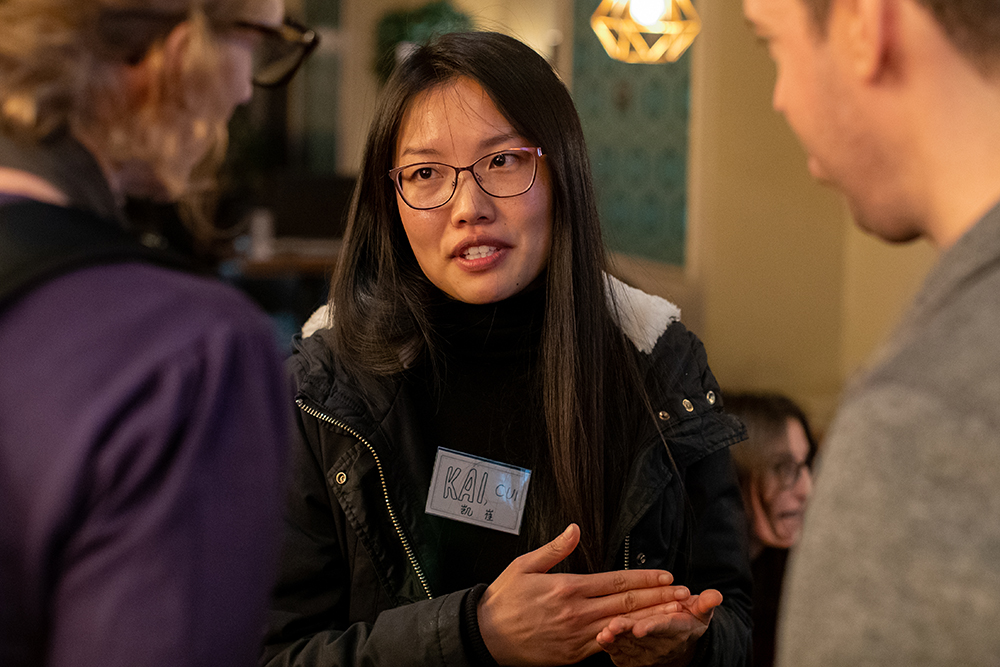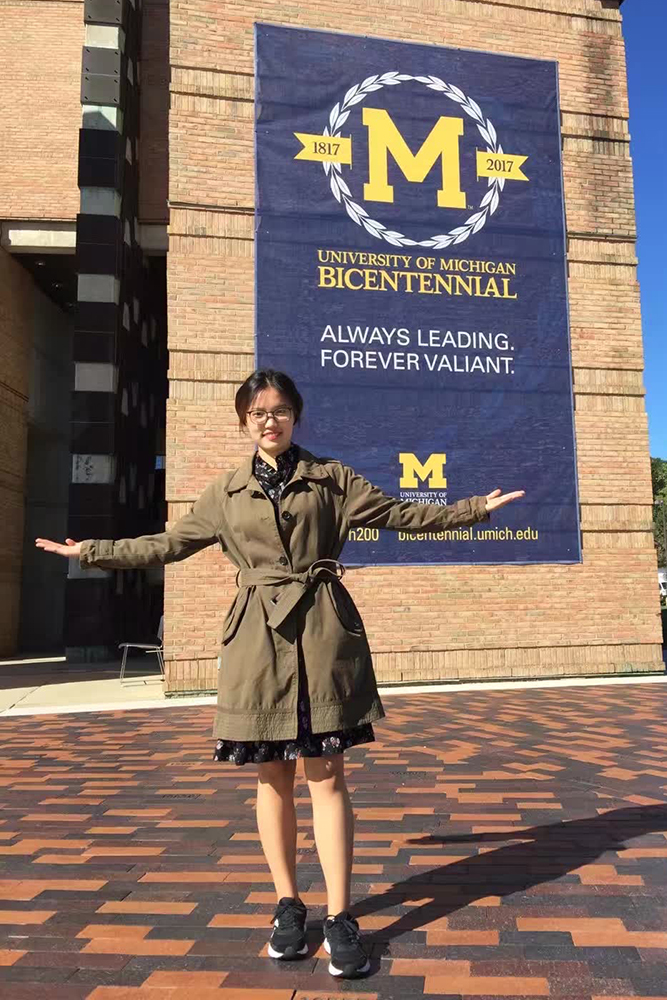ECE alum Kai Cui empowers consumers to make sustainable fashion choices with her new app

When Kai Cui (MSE ECE 2019) goes shopping, she considers more than just price and style. She supports brands that work to reduce their impact on climate and practice fair and just labor standards. That’s why she founded CarbonTag™, a startup that developed the first carbon emission calculator for consumer fashion products.
“I created CarbonTag™ so everyone can see the environmental price we pay collectively, as society, for different garments,” Cui said. “I want to empower people to make more sustainable choices when they shop.”
I want to empower people to make more sustainable choices when they shop.
Kai Cui, Founder & CEO of CarbonTag™
According to the World Economic Forum, the fashion industry (and its supply chains) is the third largest polluter in the world. It generates between 8-10% of global emissions every year, which is more than the shipping and aviation industries combined. This impact is only expected to worsen as “fast fashion” – in which people buy and discard as much as 60% more clothes than ever before – becomes more prevalent.
“CarbonTag™ analyzes the entire manufacturing process to give you an accurate estimate of the total emissions that result in producing a garment,” Cui said. “Say you want to buy a cotton T-shirt – it’ll tell you the emissions cost throughout the supply chain, from the cotton growing and harvesting to the yarn spinning and ginning to the fabric cutting and sewing until the product is transported to the customer.”

The majority of the fashion industry’s impact on the environment is due to the use raw materials, as well as water. About 2.5% of the world’s farmland is dedicated to producing cotton for the industry, roughly 342 million barrels of oil every year are needed to produce synthetic materials, like polyester, and the textiles industry as a whole is a major contributor to plastic pollution in the ocean. In addition, as much as 85% textiles, including unsold clothes, end up in landfills or are incinerated every year, producing even more toxic emissions.
“We don’t normally get exposed to this information, because the industry tries to hide it from us,” Cui said. “But with more and more consumers demanding for transparency and sustainability, some companies are trying to catch on to the green trend by overstating or even making false claims about their products. This type of false advertising is called ‘greenwashing.’”
In addition to producing harmful impacts on the environment, fast fashion is known for exploitative labor practices, such as forcing long working hours for low pay. Workers are often exposed to hazardous substances used in production, and many are forced to engage in unsafe processes to meet time constraints with a minimal budget. CarbonTag™ includes this information in its Life Cycle assessment, so consumers can support brands that align with their values. This information functions as a sort of environmental label, which Cui hopes will soon be as commonplace as nutrition labels on food products.
“This information needs to be democratized for our society to achieve sustainability,” Cui said. “I want to empower people with this knowledge, so they can be part of the change, be part of the solution rather than the problem.”

Cui has always been interested in the arts, but it was during her master’s program at U-M where she began to explore opportunities to apply her machine learning and data science skills to the fashion industry. She participated in a Detroit-based hackathon where she helped develop a shopify plugin, where consumers could customize their clothing orders and learn and track the creation of the garment. The goal was to eliminate inventory waste by shifting from a made-to-stock to a made-to-order model.
“That was when I really started to think about how unsustainable the entire fashion system is, and what I could do to help solve the problem,” Cui said. “I write blog posts on educating people about issues like greenwashing and what fashion sustainability is and how they can incorporate that into their daily lives.”
She also took Project Management and Consulting (ENTR 560) and Innovative Business Models (ENTR 520) through the Center for Entrepreneurship.
“Those classes were very inspirational for me,” Cui said. “Having a solution is not enough. You need to identify and collaborate with the people who will benefit from the solution, if you want to be impactful and make real change.”
I want to be one of those who lead the change and inspire others.
Kai Cui, Founder & CEO of CarbonTag™
Above all, Cui hopes her ambitions will inspire others, especially fellow women of color, to pursue their entrepreneurial goals.
“There are not many women, let alone women of color, pioneers,” Cui said. “I want to see more women leaders, innovators, and change makers. And I want to be one of those who lead the change and inspire others.”
 MENU
MENU 
